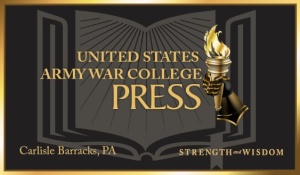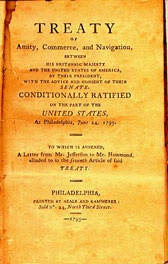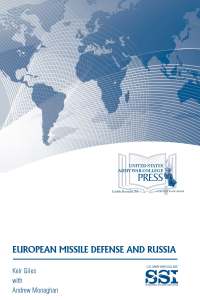 About this blog post series: In this two-part blog post, we review new publications from the U.S. Army War College, Strategic Studies Institute (SSI). As in “Lessons in Global Security – Part 1,” in this post, we continue our focus on SSI publications covering U.S. national security, public policy, and international relations topics. (Permission granted for use of Strategic Studies Institute-United States Army War College logo)
About this blog post series: In this two-part blog post, we review new publications from the U.S. Army War College, Strategic Studies Institute (SSI). As in “Lessons in Global Security – Part 1,” in this post, we continue our focus on SSI publications covering U.S. national security, public policy, and international relations topics. (Permission granted for use of Strategic Studies Institute-United States Army War College logo)
The Saudi-Iranian Rivalry and the Future of Middle East Security
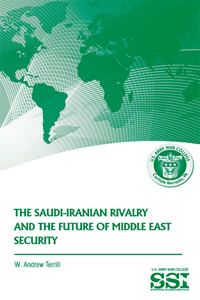 This monograph reviews the outlook of the Middle Eastern countries, including Saudi Arabia, Iran, Iraq, Egypt, Kuwait, Bahrain, Yemen, Libya, Lebanon, Israel, and Syria. Of these, Iran and Saudi Arabia are becoming the two behemoth forces in the Middle East. While Saudi Arabia has most control over Gulf-area Arab states and is a close ally with the United States, Iran’s closest Arab allies are Syria and the Palestinian territories that support Hamas and Hezbollah. The author presents several conclusions and recommendations for the U.S. policymakers to consider, emphasizing strategic interests as a way to bolster peaceful negotiations with Middle Eastern states, rather than persistent conflict over reform and democracy.
This monograph reviews the outlook of the Middle Eastern countries, including Saudi Arabia, Iran, Iraq, Egypt, Kuwait, Bahrain, Yemen, Libya, Lebanon, Israel, and Syria. Of these, Iran and Saudi Arabia are becoming the two behemoth forces in the Middle East. While Saudi Arabia has most control over Gulf-area Arab states and is a close ally with the United States, Iran’s closest Arab allies are Syria and the Palestinian territories that support Hamas and Hezbollah. The author presents several conclusions and recommendations for the U.S. policymakers to consider, emphasizing strategic interests as a way to bolster peaceful negotiations with Middle Eastern states, rather than persistent conflict over reform and democracy.
Recent newsworthy events relating to U.S. and Saudi relationship can be found in this article here:
http://abcnews.go.com/International/wireStory/kerry-hopes-win-pause-yemen-war-heads-talks-30839695
With the current events tie-in, these titles may be appropriate for high school global history classes as well as for university students with coursework relating to international relations and foreign policy arms control.
Legality in Cyberspace: An Adversary View
 This Letort Papers series title highlights the differences in interpretation between the Euro-Atlantic nations compared to China and Russia’s views of international law in relation to cyberspace activity, including cybersecurity attacks, cyber warfare, and cyber weapons. The authors explore this issue from the Russian perspective to analyze and examine the legal status of various activities in cyberspace, including what constitutes a hostile activity. The authors adequately present each side of the argument and confirm that to date an agreement on this expanding field of conflict has not yet been met.
This Letort Papers series title highlights the differences in interpretation between the Euro-Atlantic nations compared to China and Russia’s views of international law in relation to cyberspace activity, including cybersecurity attacks, cyber warfare, and cyber weapons. The authors explore this issue from the Russian perspective to analyze and examine the legal status of various activities in cyberspace, including what constitutes a hostile activity. The authors adequately present each side of the argument and confirm that to date an agreement on this expanding field of conflict has not yet been met.

(Image compliments of US Army Cyber Command website http://www.arcyber.army.mil/)
Within the conclusion section, the authors present implications for U.S. policy makers to consider; including taking a closer observation of how Russia defines cyber warfare and information weapons. After U.S. policymakers have determined Russian’s interpretations, they may be better equipped to strategizing their defense.
Students participating in cybersecurity and foreign policy programs may be interested in this text. Additionally, students pursuing a law degree may find this text informative for international law classes. Political scientists, diplomats, international law attorneys, intelligence community teams, and military strategists should keep this text on their bookshelf for referral for guidance about complex negotiations.
Army Support of Military Cyberspace Operations: Joint Contexts and Global Escalation Implications
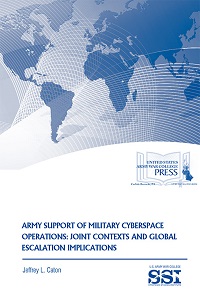 This unclassified monograph examines past and present joint and Army cyberspace military operations, as well as how these operations may fit into the complex and dynamic sphere of international deterrence and escalation. It provides information about the founding and responsibilities of the military units that comprise the U.S. Cyber Command for offensive and defensive initiatives with network operations for protection of the U.S. Department of Defense (DOD) global information grid. Primarily, these operations were developed to provide a deterrence to a nuclear threat, prior to the 21st century. Now these defenses are used to influence national response across the intelligence community and law enforcement as a method for deterrence and escalation to possibly reduce risk.
This unclassified monograph examines past and present joint and Army cyberspace military operations, as well as how these operations may fit into the complex and dynamic sphere of international deterrence and escalation. It provides information about the founding and responsibilities of the military units that comprise the U.S. Cyber Command for offensive and defensive initiatives with network operations for protection of the U.S. Department of Defense (DOD) global information grid. Primarily, these operations were developed to provide a deterrence to a nuclear threat, prior to the 21st century. Now these defenses are used to influence national response across the intelligence community and law enforcement as a method for deterrence and escalation to possibly reduce risk.
Military science and cyberspace or cybersecurity students may be interested in this text. Additionally, U.S. military personnel, U.S. international community, law enforcement, and historians may find this book useful in their operations.

(Image compliments of US Army Cyber Command website http://www.arcyber.army.mil/)
The US Government Bookstore is receiving new print titles on a weekly basis from the US Army War College, Strategic Studies Institute, so please check for future available titles on the topics of U.S. national and global security, cyberspace capabilities, combatting terrorism, and political science issues, such as international relations and foreign diplomacy, that will be added to this growing collection at this link: http://bookstore.gpo.gov/agency/1609
How can I get these new SSI publications?
Shop Online Anytime: You can buy the following publications (with FREE Standard Shipping worldwide) from the U.S. Government Online Bookstore website at http://bookstore.gpo.gov:
- Click here to purchase The Saudi-Iranian Rivalry and the Future of Middle East Security
- Click here to purchase Legality in Cyberspace: An Adversary View
- Click here to purchase Army Support of Military Cyberspace Operations: Joint Contexts and Global Escalation Implications
- Click here to browse our Strategic Studies Institute (SSI) collection
- Click here to browse our Infrastructure & Electronic Security collection
Order by Phone: You may also Order print editions by calling our Customer Contact Center Monday through Friday, 8 am to 5:30 pm Eastern (except US Federal holidays). From US and Canada, call toll-free 1.866.512.1800. DC or International customers call +1.202.512.1800.
Shop our Retail Store: Buy a copy of any print editions from this collection at GPO’s retail bookstore at 710 North Capitol Street NW, Washington, DC 20401, open Monday–Friday, 9 a.m. to 4 p.m., except Federal holidays, Call (202) 512-0132 for information or to arrange in-store pick-up.
Visit a Federal depository library: Search for U.S. Government publications in a nearby Federal depository library. You can find the records for most titles in GPO’s Catalog of U.S. Government Publications.
About the author: This week’s blog contributor is Maureen Whelan, Senior Marketing Team Leader for GPO’s Publication and Information Sales program office in Washington, DC. Maureen oversees print and digital content dissemination strategy and manages third party free and paid content distribution through platforms and vendors, such as Apple iBookstore, Barnes and Noble.com, Google Play eBookstore, Ebscohost databases, Overdrive, and more.
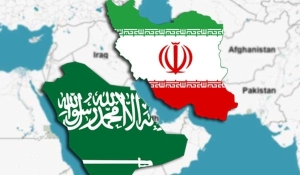



 Posted by Trudy Hawkins
Posted by Trudy Hawkins 